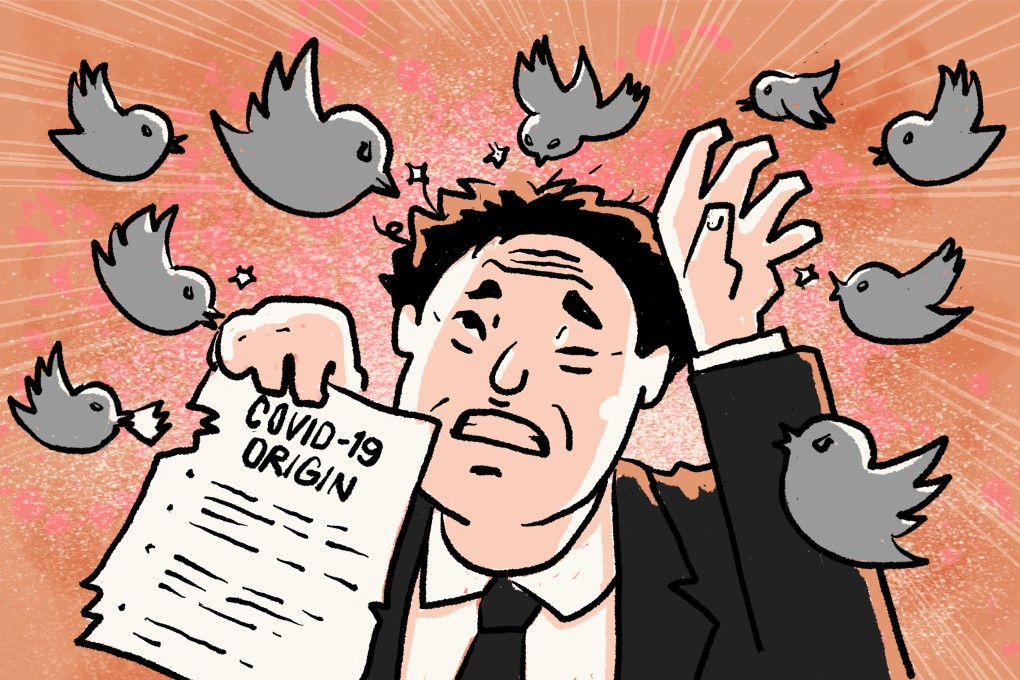Science turns nasty in Covid-19 origins argument on Twitter
- It was already a battleground for those in the ‘zoonati’ camp versus the lab-leak proponents – from conspiracy theorists to virologists
- Then came documents from a purported whistle-blower that have started another frenzy over bat virus research in China

The duelling narratives have brought internet sleuths, conspiracy theorists, amateur scientists and virus specialists into the fray. Scientists on both sides have found themselves at the receiving end of Twitter abuse.
This reflects in a survey released by Nature magazine on Wednesday that found more than 20 per cent of scientists making media comments about Covid-19 said they received threats of physical or sexual violence.
If people with some expertise don’t weigh into this, then this [lab leak] narrative just goes unchallenged
For Neil, the Twitter rabbit hole now means tapping out tweets on his iPhone while on the train to work. He grudgingly embraces the label “zoonati” – a term used by so-called lab-leak proponents for the majority of scientists who argue the virus likely originated in bats and jumped to humans, as opposed to an infection route via a lab experiment or accident.